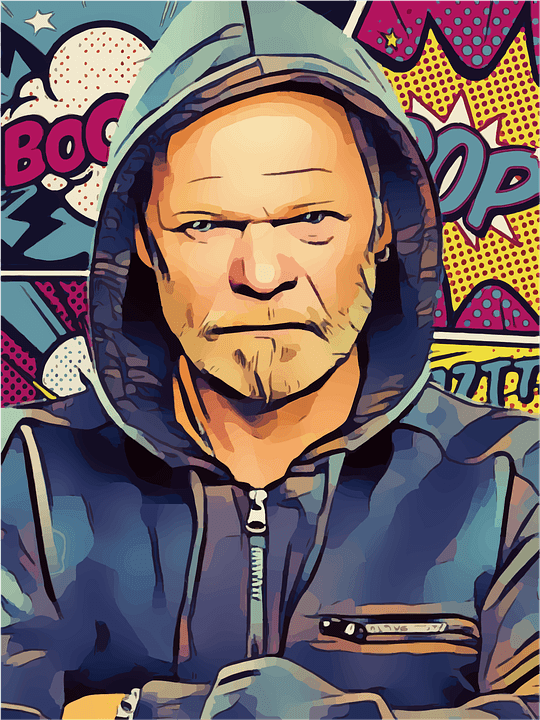You are here
Home ›The Comic Book Hero Next Door
FTC Statement: Reviewers are frequently provided by the publisher/production company with a copy of the material being reviewed.The opinions published are solely those of the respective reviewers and may not reflect the opinions of CriticalBlast.com or its management.
As an Amazon Associate, we earn from qualifying purchases. (This is a legal requirement, as apparently some sites advertise for Amazon for free. Yes, that's sarcasm.)

Nobody likes to see their heroes get their asses handed to them – especially if those heroes have superpowers. It just not right! This is probably why I couldn’t thoroughly enjoy the Netflix incarnation of Marvel’s DAREDEVIL, the poor guy was simply beaten too often.
I know that a good story requires that heroes face adversaries who get the better of them during the first encounter. But after some clever plotting, or training, or gadgets, heroes are supposed to win the day. However, the Devil of Hell’s Kitchen was found unconscious in an ally or on a roof, usually in a pool of his own blood, almost every week.
Shedding tears for fallen heroes
Do you remember movie audiences’ dismay when they witnessed Superman’s funeral at the end of BATMAN VS. SUPERMAN? And what about the outpouring grief that gripped theatregoers after watching AVENGERS INFINITY WAR? Our heroes are not supposed to lose.
So what despair awaits comic book fans if the heroes in the stories are not superpowered at all – just ordinary people? Armed with nothing more than short-sightedness, tender flesh, and weak upper body strength, all manner of ills could befall these everyday heroes. Defeat, death or disintegration is waiting for them at every corner.
The Frail, the Feeble and the Fallible
Despite our dislike for sad endings, graphic biographies of ordinary people who accomplish extraordinary things are remarkably popular. For instance, Brad Meltzer, the best-selling author of Justice League of America, has recently produced a graphic biography of Gandhi. Now, everyone knows that the hero dies in the end, but we are seemingly OK with that. Graphic biographies of the likes of Che Guevara, Malcolm X, or other historical figures, whose endings are similarly tragic, enjoy the same popular appeal.
The comic-book treatment has also been extended to living, everyday heroes. Personalities from sports, business and entertainment have been surprised to discover that they had become the main character in a comic book.
The Canadian publisher, Blue Water Publications, has released a string of graphic novels about heroes going by the name of Mark Zuckerberg, Hilary Clinton and Ellen DeGeneres. Even war-torn Syria has served as a backdrop to a graphic novel that recounts the tale of a humanitarian aid worker on a dangerous mission. Although the main protagonist is fictional – an amalgam of humanitarian aid workers – almost all the other characters are real-life people.
We set a low bar for non-supers
So, what is the difference between a hero named Daredevil and one named DeGeneres? How can we feel demoralized when one is defeated by a well-trained or well-armed adversary while knowing the other could be struck down at any time by a common cold? Well, it is just a question of the reference point. We set the bar very high for our super-powered idols, and we wait eagerly for subsequent editions of our favorite comic books and movie franchises. In the case of politicians, business titans and talk show hosts (for whom death and disability are inevitable) we are simply less demanding.
Photo by prettysleep1, Public Domain


